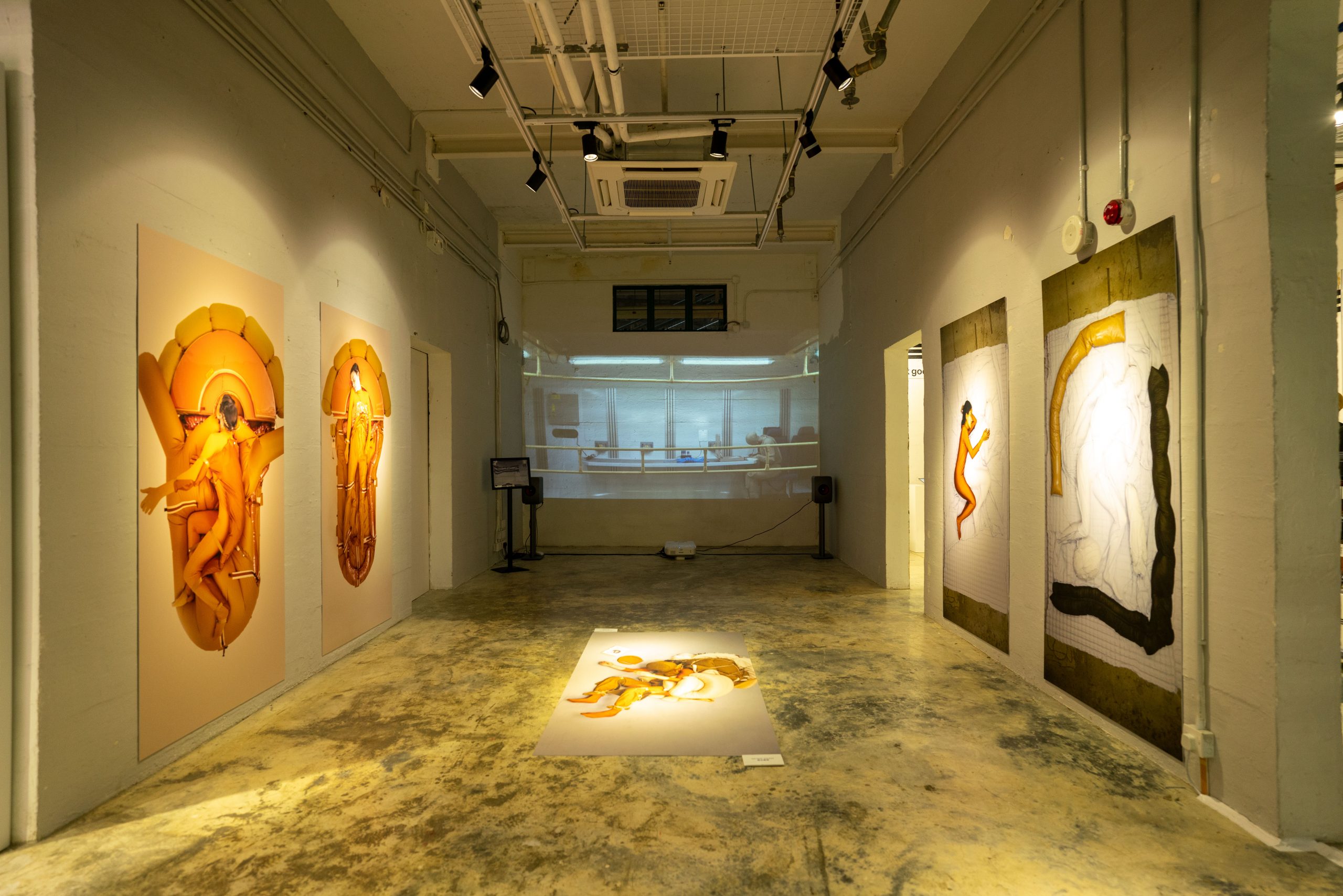
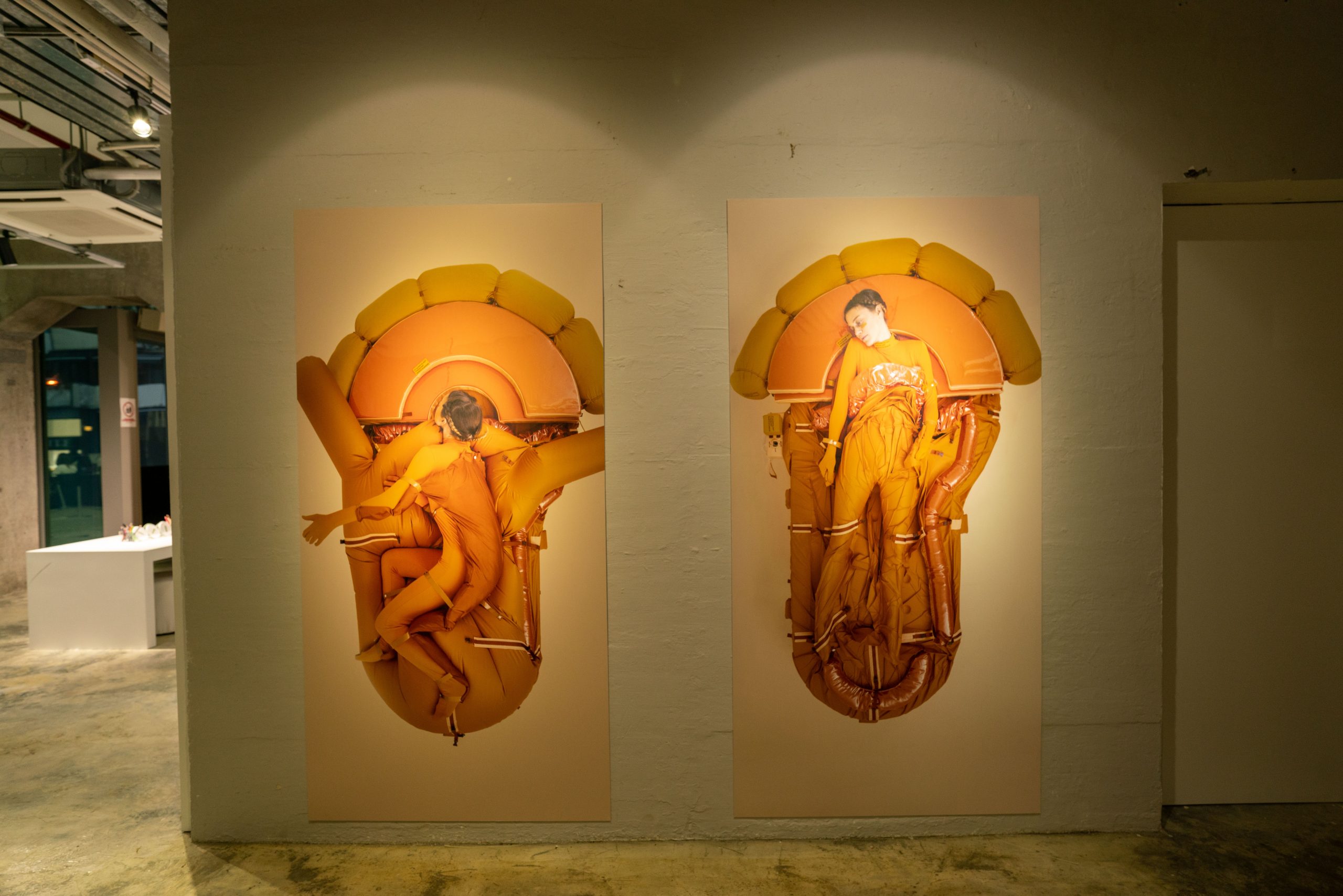
Solitary Survival Raft is a machine that comforts a single body as they drift into the unknown. This artwork explores how we can reconcile the human urge to explore new frontiers, while tending to fear. The raft is an exploration of where we are at, rather than a demonstration of survival – do you drop off the edge when you reach the horizon, or verge closer to truth when you give fear the cold shoulder?
Commissioned by Haus der elektronischen Künste (HeK), Basel and MU Hybrid Art House, Eindhoven for Real Feelings.
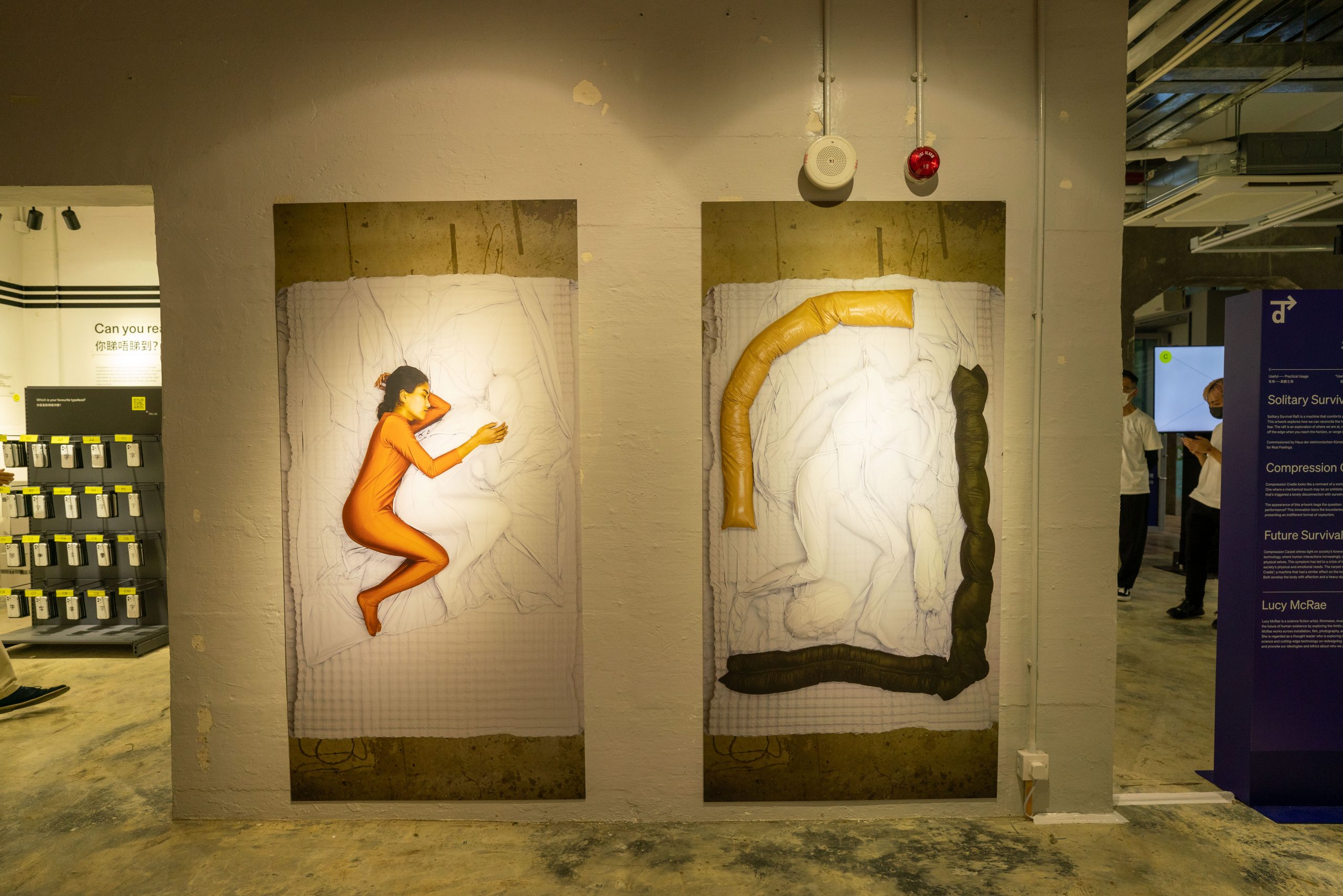
Compression Cradle looks like a remnant of a world we have not yet seen, but might soon inhabit. One where a mechanical touch may be an antidote to today’s “forever connectedness”; a behaviour that’s triggered a lonely disconnection with ourselves.
The appearance of this artwork begs the question: is this a device for sleeping, for pleasure or for performance? This innovation blurs the boundaries between entertainment and domestic space, presenting an indifferent format of voyeurism.
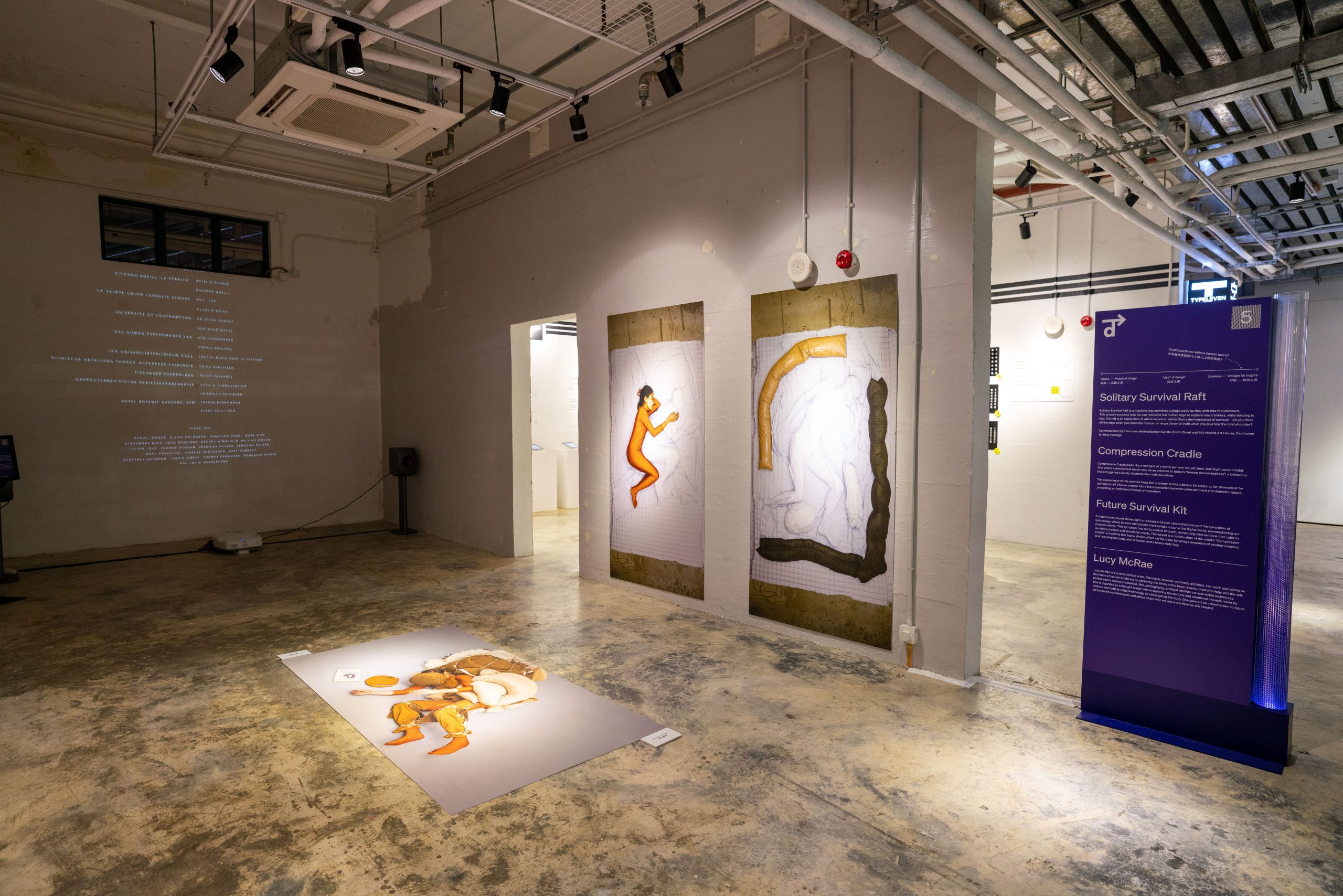
Compression Carpet shines light on society’s forever connectedness and the symptoms of technology, where human interactions increasingly occur in the digital world, overshadowing our physical selves. This symptom has led to a crisis of touch, demanding interventions that cater to society’s physical and emotional needs. The carpet is a continuation of the artist’s “Compression Cradle”, a machine that had a similar effect on the body by using a sequence of aerated volumes. Both envelop the body with affection and a heavy-duty hug.
The Institute of Isolation is an observational documentary exploring the human body in unnatural conditions. In a near-future reality, a fictional organisation offers individuals the chance to optimise their bodies and test the effects of extreme experience on the evolution of human biology. Referencing developments in genetic engineering and medical technology, the artist examines how fundamental aspects of the brain and body might be shaped through intentional sensory deprivation and isolation.
The film contemplates the design of isolation and the changing relationship of the body and technology. The protagonist moves through a series of sensory chambers, spending time in an anechoic chamber to examine the psychoacoustics of silence, or in a self–invented microgravity trainer that conditions the body for life in space. These fictional locations are used to make architectural enquires into the role buildings could have in altering human biology on an evolutionary scale.
Commissioned by Ars Electronica and SPARKS.
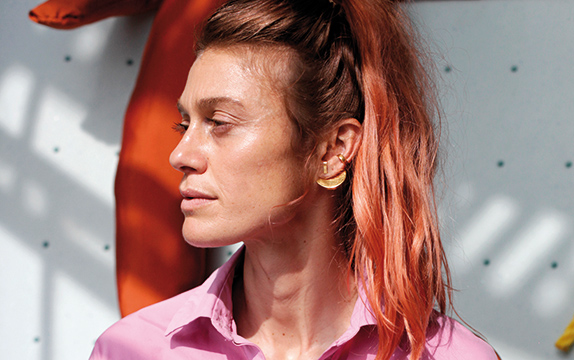
Lucy McRae is a science fiction artist, filmmaker, inventor and body architect. Her work speculates on the future of human existence by exploring the limits of the body, beauty, biotechnology and the self. McRae works across installation, film, photography, artificial intelligence and edible technology. She is regarded as a thought leader who is exploring the cultural and emotional impacts made by science and cutting-edge technology on redesigning the body. She uses art as a mechanism to signal and provoke our ideologies and ethics about who we are and where we are headed.